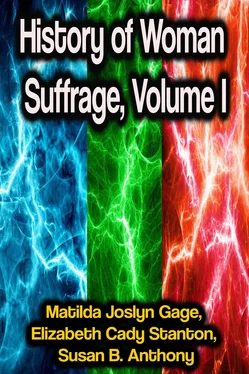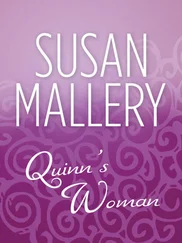Utterly unnerved by the anxious faces of my committee, I turned to my audience with only the inspiration of homes devastated and families paupered, to sustain me in a desperate exhibit of the need and the "determination of women, impelled by the mother-love that shrinks neither from fire or flood, to rescue their loved ones from the fires and floods of the liquor traffic, though to do so they must make their way through every platform and pulpit in the land!" "Thank God!" exclaimed the licentiate on my right. "Amen!" emphasized the chairman oh my left. My committee were radiant. My audience had accepted woman's rights in her wrongs; and I —— only woman's recording angel can tell the sensations of a disfranchised woman when her "declaration of intentions" is endorsed by an Anti-Woman's Rights audience with fervent thanks to God!
Latter-day laborers can have little idea of the trials of the early worker, driven by the stress of right and duty against popular prejudices, to which her own training and early habits of thought have made her painfully sensitive. St. Paul, our patron saint, I think had just come through such a trial of his nerves when he wrote: "The spirit is willing, but the flesh is weak." The memory of the beautiful scenery, the charming Indian summer skies, the restful companionship of our family party in the daily drive, and the generous hospitality of the people of Wisconsin, is one of the pleasantest of a life, as full of sweet memories as of trials, amid and through which they have clung to me with a saving grace.
The Temperance majority in the ensuing election, so far as influenced by canvassing agents, was due to the combined efforts of all who labored for it, and of these it was my good fortune to meet a younger brother of William H. and O. C. Burleigh, who from his man's stand-point of precedents and statistics did excellent service.
The law enacted by the Legislature securing to the wives of drunkards their earnings and the custody and earnings of their minor children, I think I may claim as a result of appeals from the home stand-point of woman's sphere. As a financial measure diverting the supplies and lessening the profits of the liquor traffic, this law is a civil service reform of no mean promise for the abatement of pauper and criminal taxes. In a plea of counsel for defendant in a case of wife-beating to which I once listened, said the gentlemanly attorney: "If Patrick will let the bottle alone"—"Please, your honor," broke in the weeping wife, "if you will stop Misthur Kelly from filling it."
In October, 1854, with my two eldest sons, I joined a company of two hundred and twenty-five men, women, and children, emigrants from the East to Kansas. In our passage up the Missouri River I gave two lectures by invitation of a committee of emigrants and Captain Choteau and brother, owners of the boat. A pious M.D. was terribly shocked at the prospect, and hurried his young wife to bed, but returned to the cabin himself in good time to hear. As the position was quite central, and I wished to be heard distinctly by the crowd which occupied all the standing room around the cabin, I took my stand opposite the Doctor's berth. Next morning, poor man! his wife was an outspoken advocate of woman's rights. The next evening she punched his ribs vigorously, at every point made for suffrage, which was the subject of my second lecture.
The 1st of November, 1854—a day never to be forgotten—heaven and earth clasped hands in silent benedictions on that band of immigrants, some on foot, some on horseback, women and children, seventy-five in number, with the company's baggage, in ox-carts and wagons drawn by the fat, the broken-down, and the indifferent "hacks" of wondering, scowling Missouri, scattered all along the prairie road from Kansas City to Lawrence, the Mecca of their pilgrimage.
In advance of all these, at 11 o'clock a.m., Mrs. H—— and myself were sitting in front of the Lawrence office of the New England Emigrant Aid Company, in the covered wagon of Hon. S. C. Pomeroy, who had brought us from Kansas City, and entered the office to announce the arrival of our company; when a hilarious explosion of several voices assured us that good lungs as well as brave hearts were within. Directly Col. P. and Dr. (Governor) Robinson came out. "Did you hear the cheering?" asked the Doctor. "I did, and was thinking when you came out, what a popular man the Colonel must be to call forth such a greeting!" "But the cheers were for Mrs. Nichols," was the reply; and the Doctor proceeded to tell us that, "the boys" had been hotly discussing women's rights, when one of their advocates who had heard her lecture, expressed a wish that his opponents could hear Antoinette Brown on the subject; a second wished they could hear Susan B. Anthony; and a third wished they could hear Mrs. Nichols. On the heels of these wishes, the announcement of Colonel Pomeroy, that "Mrs. Nichols was at the door," was the signal for triumphant cheering. "The boys" wanted a lecture in the evening. The Doctor said: "No; Mrs. Nichols is tired. To-morrow the thatching of the church will be completed, and she can dedicate the building."
Thus truths sown broadcast among the stereotyped beliefs and prejudices of the old and populous communities of the East, had wrought a genial welcome for myself and the advocacy of woman's cause on the disputed soil of Kansas. But, alas! for the "stony ground." One of "the boys" didn't stay to the "dedication." He had "come to Kansas to get away from the women," and left at once for Leavenworth. I wonder if the Judge—he is that now, and a benedict—remembers? I still regret that lost opportunity for making his acquaintance.
At Lawrence, the objective point of all the Free State immigration, where I spent six weeks in assisting my sons to make a home for the winter, I mingled freely with the incoming population, and gave several lectures to audiences of from two to three hundred, the entire population coming together at the ringing of the city dinnerbell. I returned to Vermont early in January, 1855, and in April following, with two hundred and fifty emigrants (my husband and younger son accompanying me), rejoined my other sons in the vicinity of Baldwin City, where we took claims and commenced homes. I presented the whole subject of Woman's Rights on the boats in going and returning, as at first, by invitation. In the summer of 1855, delegates were elected to a Constitutional Convention, which later convened at Topeka. Governor Robinson, who with six other delegates voted for the exclusion of the word "male" from qualification for elector, sent me an invitation to attend its sessions, speak before it for woman's equality, and they would vote me a secretary's or clerk's position in the Convention. My husband's fatal illness prevented me from going.
In January, 1856, I returned from Kansas to Vermont, widowed and broken in health, to attend to matters connected with my husband's estate. Prevented by the ruffian blockade of the Missouri from returning as intended, I spent some time in the summer and all of the autumn of 1856 and January, 1857, lecturing upon Kansas, the character and significance of its political involvements, its promise and importance as a free or slave State, and its claims to an efficient support in the interest of freedom. In September, being appealed to by the "Kansas National Aid Committee," at the instance of Horace Greeley, I engaged for two months in a canvass of Western New York, lecturing and procuring the appointment of committees of women to collect supplies for the suffering people of Kansas; my two oldest sons, C. H. and A. O. Carpenter being among its armed defenders, the latter having been wounded in the fight between the invaders under Captain Pate and the forces under John Brown and Captain S. Shores, at Black Jack.
Читать дальше












